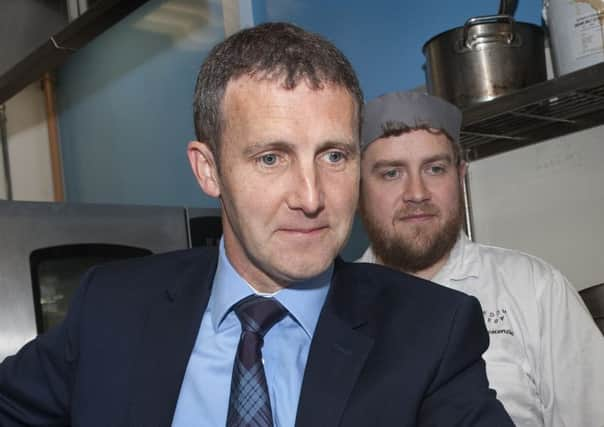Chris Marshall: Battle lines are already drawn over corroboration debate


The figure has remained stubbornly low for the past decade, hovering around the 50 per cent mark but rarely going much higher.
In contrast, the conviction rate for all crimes is 86 per cent, with around three-quarters of homicides and two-thirds of serious assaults resulting in someone being found guilty.
Advertisement
Hide AdAdvertisement
Hide AdThe statistics, however, only tell part of the story. For every rape case which makes it to court, there are many more which don’t.
Groups such as Rape Crisis Scotland believe the reason for that lies, at least in part, with corroboration – the centuries-old legal principle which requires two pieces of evidence for a case to come to trial.
Corroboration is back on the agenda after Lord Advocate James Wolffe signalled it could yet be scrapped as part of a wide-ranging review of the legal system.
In an interview with The Scotsman, Scotland’s most senior prosecutor said the issue would be re-visited as part of a “package of measures” being considered to improve the criminal justice system.
A provision to remove corroboration had been controversially included in the Criminal Justice (Scotland) Bill, but was removed by justice secretary Michael Matheson in 2015 following a storm of protest from the legal fraternity. Mr Matheson asked for more time to consider corroboration following the publication of a report by Lord Bonomy which looked at legal safeguards.
Lord Bonomy’s report made a series of recommendations, including a requirement that police video all interviews with suspects and that the practice of dock identification – when the accused is identified as the perpetrator in court – be ended.
Mr Matheson said the proposals were “substantial and complex” and would have a considerable impact on the justice system.
According to the lord advocate, the Scottish Government is still considering those reforms.
Advertisement
Hide AdAdvertisement
Hide AdIt is understood the government is currently commissioning jury research and will then turn to looking at corroboration.
But while the Lord Advocate appears open to considering the issue, the organisation he previously led remains implacably opposed to the removal of corroboration.
The Faculty of Advocates, of which Mr Wolffe was dean, has said any move to do away with corroboration would be “a mistake”, but an even bigger one if done “in isolation” without considering some of Lord Bonomy’s safeguards.
Either way, the issue will remain fraught and appears unlikely to be re-visited by the Scottish Government in the immediate future.
Any attempts to legislate to have corroboration removed would be likely to be opposed not only by the Faculty of Advocates, but also a good number of MSPs.
Those on the other side of the debate remain convinced corroboration remains a significant barrier to justice for rape victims.
Speaking to this newspaper, Mr Wolffe said: “Inevitably, as a prosecutor I’m very conscious of the role corroboration plays in the system and the impact it has on decision making in individual cases.”
His views – whether they have changed or not – could yet prove to be crucial.